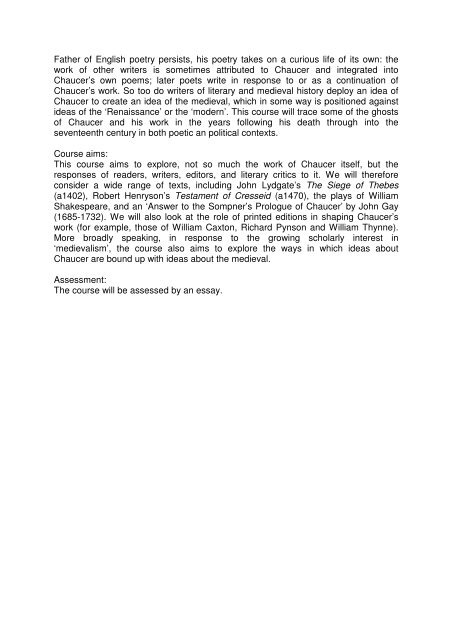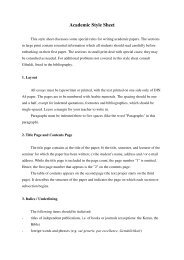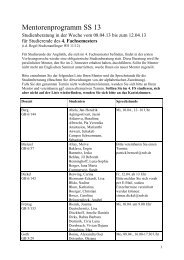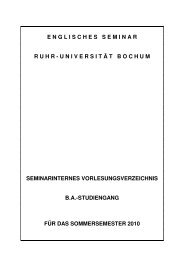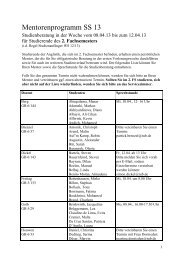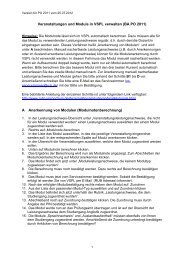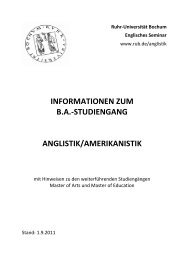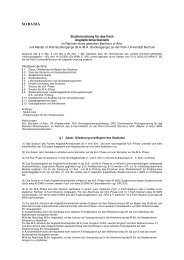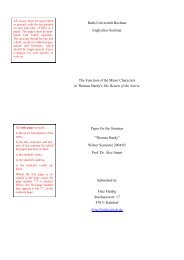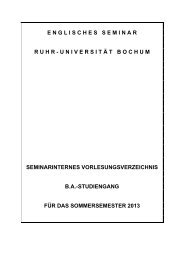Englisches Seminar - Ruhr-Universität Bochum
Englisches Seminar - Ruhr-Universität Bochum
Englisches Seminar - Ruhr-Universität Bochum
Create successful ePaper yourself
Turn your PDF publications into a flip-book with our unique Google optimized e-Paper software.
Father of English poetry persists, his poetry takes on a curious life of its own: the<br />
work of other writers is sometimes attributed to Chaucer and integrated into<br />
Chaucer’s own poems; later poets write in response to or as a continuation of<br />
Chaucer’s work. So too do writers of literary and medieval history deploy an idea of<br />
Chaucer to create an idea of the medieval, which in some way is positioned against<br />
ideas of the ‘Renaissance’ or the ‘modern’. This course will trace some of the ghosts<br />
of Chaucer and his work in the years following his death through into the<br />
seventeenth century in both poetic an political contexts.<br />
Course aims:<br />
This course aims to explore, not so much the work of Chaucer itself, but the<br />
responses of readers, writers, editors, and literary critics to it. We will therefore<br />
consider a wide range of texts, including John Lydgate’s The Siege of Thebes<br />
(a1402), Robert Henryson’s Testament of Cresseid (a1470), the plays of William<br />
Shakespeare, and an ‘Answer to the Sompner’s Prologue of Chaucer’ by John Gay<br />
(1685-1732). We will also look at the role of printed editions in shaping Chaucer’s<br />
work (for example, those of William Caxton, Richard Pynson and William Thynne).<br />
More broadly speaking, in response to the growing scholarly interest in<br />
‘medievalism’, the course also aims to explore the ways in which ideas about<br />
Chaucer are bound up with ideas about the medieval.<br />
Assessment:<br />
The course will be assessed by an essay.


